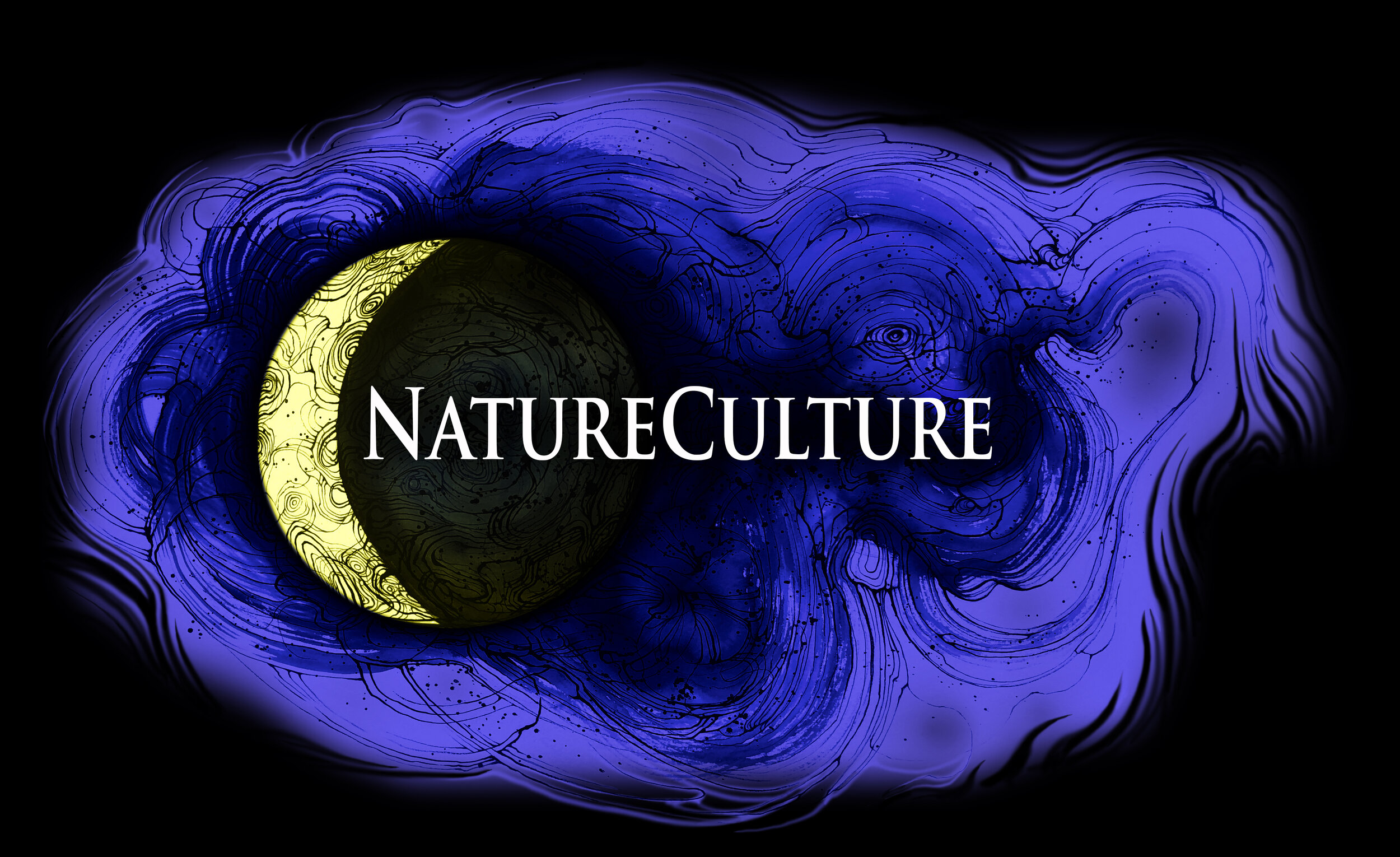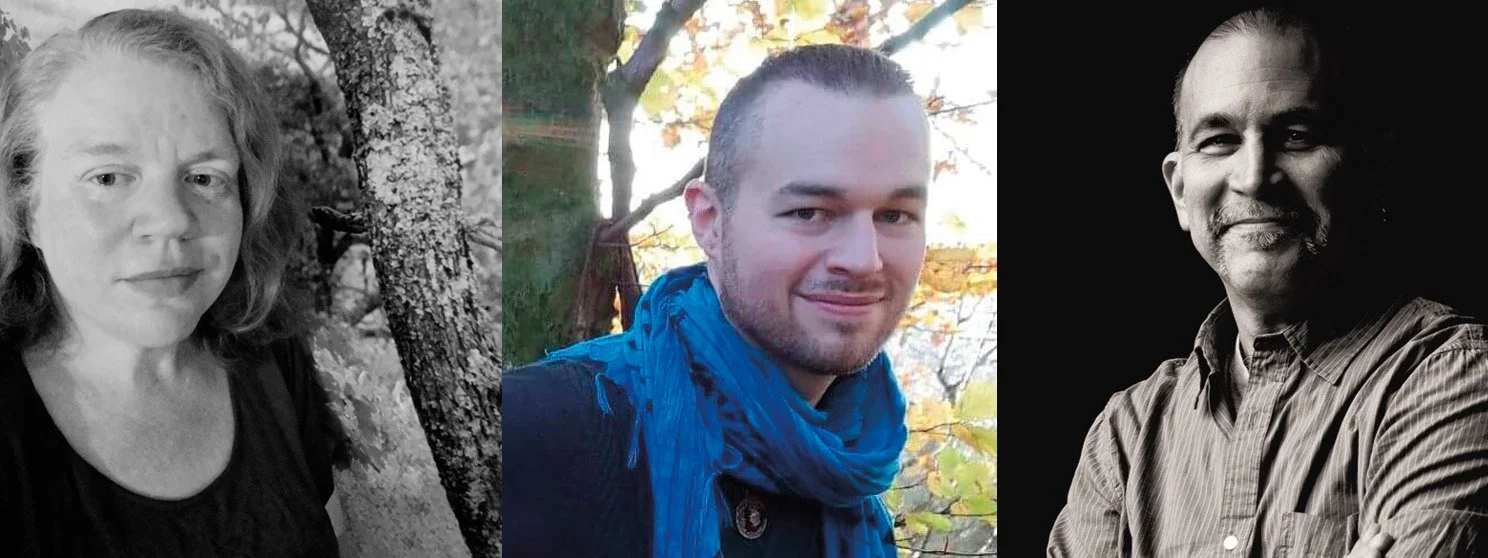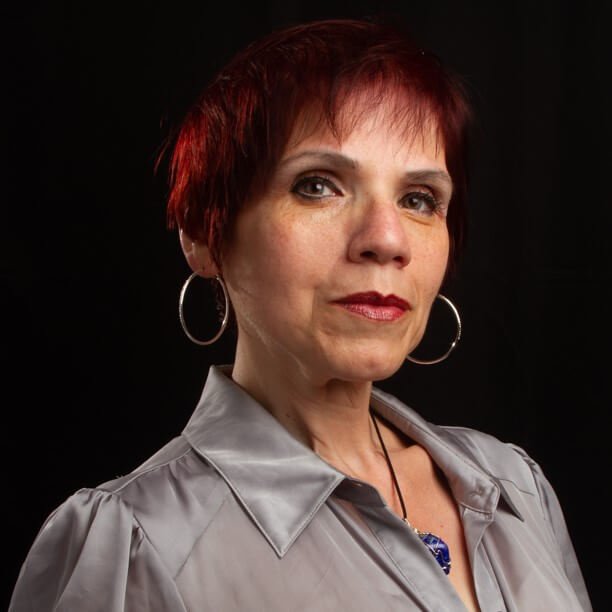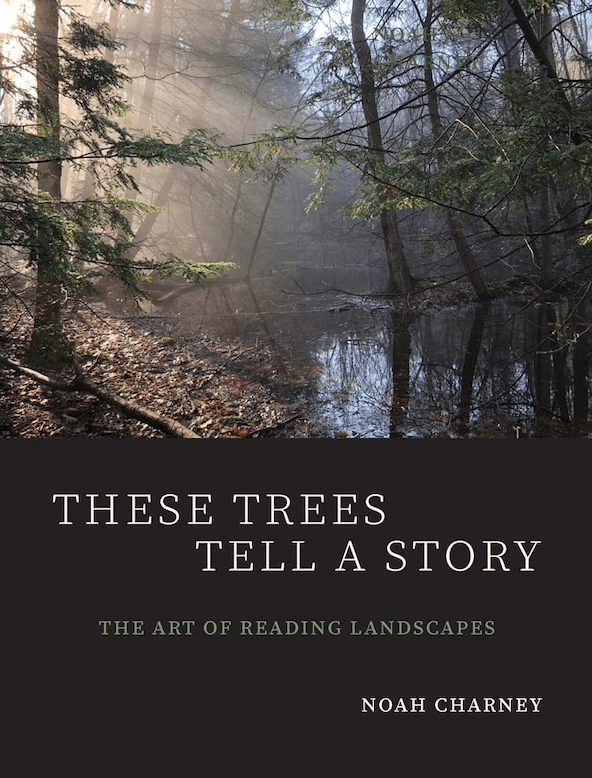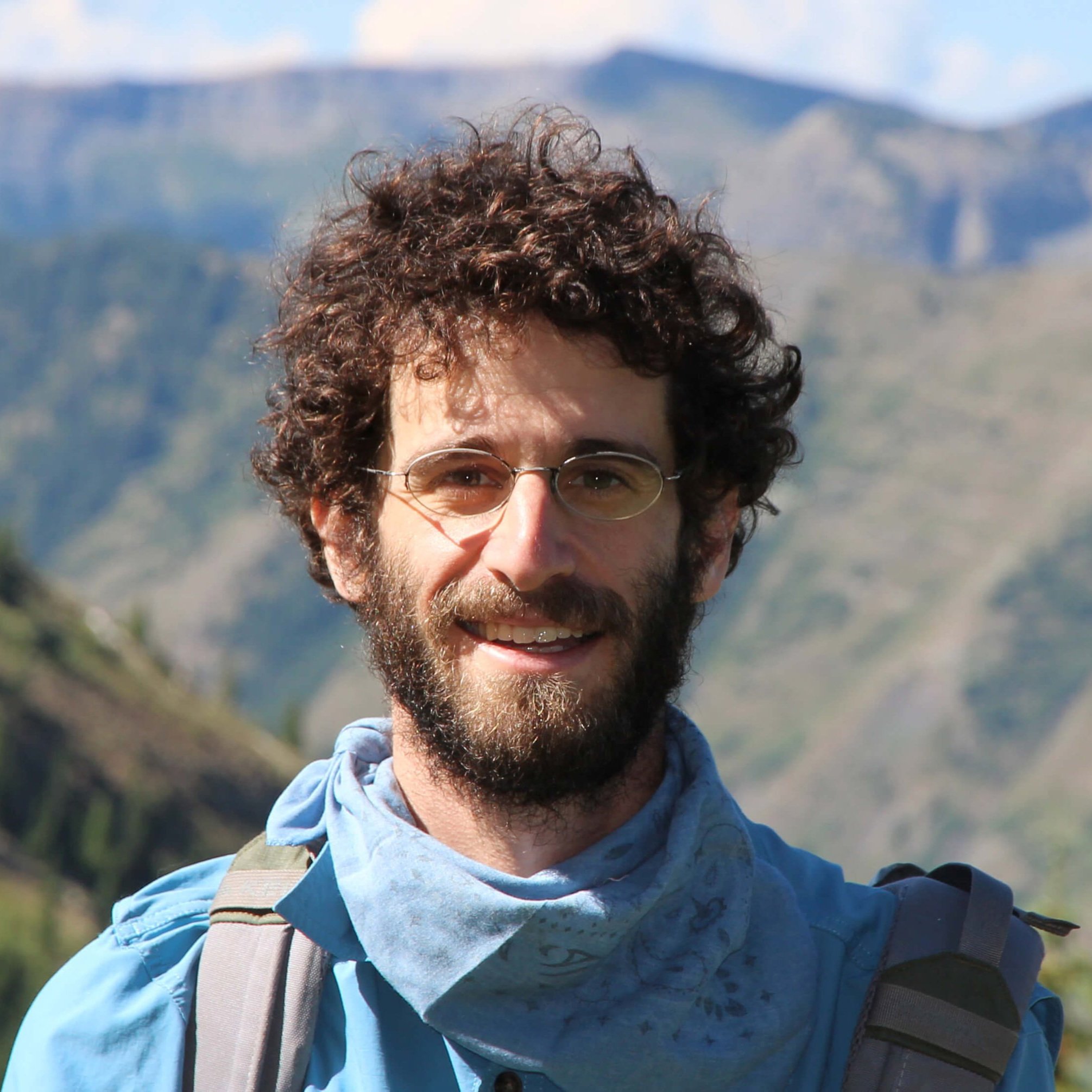2023 Speakers
Samaa Abdurraqib and Katherine Hagopian Berry
From Root to Seed: Black, Brown, and Indigenous Poets Write the Northeast, and LandTrust
Two poetry books published by NatureCulture focusing on the northeastern part of the continent. Katherine Hagopian Berry’s poems are situated in Maine, while Samaa Abdurraqib has edited an anthology of poets of color, some of whom join to read in this celebration of lands in the Northeastern US.
Katherine Hagopian Berry has appeared in the Café Review, Enough: Poems of Resistance and Protest, A Dangerous New World: Maine Voices on the Climate Crisis, Balancing Act II: An Anthology of Poetry by Fifty Maine Women, Glass: Poet’s Resist, and been a finalist and showcase performer at the Belfast Poetry Festival. Katherine is a poetry reader for the Maine Review; her first collection of poetry, Mast Year, was published by Littoral Books in March 2020. She has work forthcoming in Strange Fire, Jewish Voices on the Pandemic and will be the featured poet in the Fall/Winter 2020 edition of Frost Meadow Review. Katherine lives and writes in Bridgton, Maine.
After spending most of her life in the Midwest, Samaa Abdurraqib has spent the last decade loving and living on unceded Wabanaki/Abenaki territory. Since 2017, Samaa has been focused on writing poetry, which represents a return to the form after a 20 year hiatus. Her poetry can be found in Deep Water, Wait: Poems from the Pandemic, and Enough! Poems of Resistance and Protest. Each Day Is Like An Anchor (2020) is her first chapbook. Samaa spends much of her free time recreating in the outdoors, enjoying the waterways, mountains, birds, and woods of Maine and New Hampshire.
Headline Poet and Retreat Leader Catalina Cantú
Catalina Cantú
Headline Poet and Retreat Leader
Catalina Marie Cantú (Xicana) of Indigenous Mexican/Madeiran heritage was born in San Francisco, CA. Cantú is a multi-genre writer, interdisciplinary artist, Jack Straw Fellow, and VONA/Voices Alum. She has received funding from Artists’ Trust, Hugo House, Centrum, and Hedgebrook. Her poems and stories have been published in La Bloga, Poetry on Buses, Raven Chronicles magazine, Seattle Poetic Grid, The Inspired Poet, and anthologized in Jack Straw Writers Anthology, Take a Stand: Art Against Hate, A Raven Chronicles Anthology, and In Xóchitl, in Cuícatl: Floricanto, Cien años de poesía chicanx/Latinx (1920-2020). Cantú earned a B.A. in La Raza Studies, and a J.D. from the University of Washington, where she was a co-founding member of the groundbreaking Latinx groups MEChA and Teatro del Piojo. As a volunteer attorney, she managed the King County Bar Association Bilingual Spanish Legal Clinic. She is a co-founding member and current Board President of La Sala Artists’, and former chair of Los Norteños NW Latino Writers. She lives on the unceded traditional land of the Coast Salish peoples, specifically, the first people of Seattle, the Duwamish People.
Dr. Lisa Dahill
Lisa Dahill, PhD
Rewilding Ritual: Practices of Encounter, Lament, and Love of Place
This webinar explores how rituals of many kinds can deepen or restore life-giving connections to place, creatures, elements, and/or the sacred. Such ritual creativity challenges dominant forms of religious enclosure in sacred space defined exclusively indoors. And it provides a healing and heart-opening expansion of participants' experiences of belonging to the living Earth, right in their own place. The webinar will include examples of rewilding in existing religious traditions, moving traditional practices out into much richer and stranger interspecies and elemental contexts, as well as examples of new and/or traditional pagan rituals tied to seasons, cycles, and local movements or energies.
Lisa E. Dahill, Ph.D., is Miriam Therese Winter Professor of Transformative Leadership and Spirituality at Hartford International University for Religion and Peace (Hartford, CT). Her work explores forms of religious non-dualism, the arts, ritual, and the question of what happens when largely indoor traditions move out: how love of place and its creatures and elements can create new forms of community across both intra-human and species/place boundaries.
CMarie Fuhrman
Headline Poet and Retreat Leader
CMarie Fuhrman is the author of Camped Beneath the Dam: Poems (Floodgate 2020) and co-editor of Native Voices (Tupelo 2019). She has forthcoming or published poetry and nonfiction in multiple journals including Emergence Magazine, Yellow Medicine Review, Poetry Northwest, as well as several anthologies. CMarie is a regular columnist for the Inlander, the Translations Editor for Broadsided Press, Non-Fiction Editor for High Desert Journal, and Director of the Elk River Writers Workshop. She teaches in the low residency MFA Program at Western Colorado University and is the 2021-2023 Idaho Writer in Residence. CMarie resides in the mountains of West Central Idaho.
Hiram Larew, PhD
Artwork by Diane Wilbon Parks
Poetry X Hunger: What you Need to Know
Tune in to learn more about the new ways that poetry is working to alleviate hunger. Hiram Larew and T. A. Niles draw on their recent experience from Poetry X Hunger. Join this lively discussion as they showcase powerful poems that are being put to good use by a variety of anti-hunger communities.
Hiram Larew founded the informal Poetry X Hunger initiative in 2017 as a way to bring two areas of interest – poetry and hunger prevention – together. Upon retiring from the U.S. Department of Agriculture where he helped guide international agriculture programs, he noticed that relatively little poetry about hunger was available. Believing in the power of poetry to touch hearts and minds, he launched Poetry X Hunger as a way to encourage poets to write about hunger.
Larew’s poetry has been nominated four times for national Pushcart Prizes, and he has received grants from the Maryland State Arts Council and the Prince George’s Arts and Humanities Council for his poetry activities. His poems have appeared widely in journals and books in the U.S., Germany, Britain, Nigeria, The Netherlands, Ireland and elsewhere. His fourth collection, Undone, was published in 2018 by FootHills Publishing.
Cascadia Field Guide: Art/Ecology/Poetry
Cascadia: Field Guide
Art, Ecology, Poetry
Enjoy a discussion of, and poetry from, Cascadia with editors/poets CMarie Fuhrman and Derek Sheffield.
Dr. Lise Weil
Lise Weil and Writers from
Dark Matter: Women Witnessing
Five contributors from Dark Matter: Women Witnessing will be reading poems and essay excerpts from recent issues: “Bodies in (and out of) Place” and “Dead and Alive: Being with Ancestors.” Dark Matter: Women Witnessing, edited by Lise Weil, publishes writing and visual art created in response to an age of massive species loss and ecological collapse. It is a home for dreams, visions, and communications with the non-human world—especially those with messages for how we might begin to heal our broken relationship to earth.
Participants: Lesley Schwartz (“Leaving the Mother Country”), Anne Bergeron (“The Night the Thunder Called”), Kim Zombik (“In the Name of So Many”), Shante’ Sojourn Zenith (“I Just Want to Feel I Belong”) and Elliott batTzedek («Benediction»). Editors Lise Weil and Kristin Flyntz will host a brief discussion after the readings.
Kirsten Martin, PhD with panelists Dr. Stephen Trombulak and Christopher Croucher
The Interdisciplinarity and Integration of Arts and Sciences: Conservation and Environmental Awareness
In this presentation, Dr. Kirsten Martin will talk about her work in integrating art and writing into college environmental science courses to enhance student observation skills and to help foster deeper connections to local landscapes. The pairing and blending of arts and science is also part of our broader recognition that if we hope to restore our environments, we must also “re-story” our relationships and our responsibilities to the places we inhabit. Panelists Christopher Croucher (dance) and Dr. Stephen Trombulak (environmental studies) add ways they have found art and science to work together when it comes to human relations and the rest of nature.
Kirsten Martin is an Associate Professor of Biology, and Program Director for the new Bachelor of Science in Environmental Science program at the University of Saint Joseph, West Hartford, CT. She has degrees in Wildlife Management, Environmental Education, and Environmental Studies (with a focus on aquatic entomology – dragonfly ecology). Prior to entering the academic world, Kirsten worked in the nonformal science education field. She is also a musician, and plays French horn and bamboo pipes with ensembles in the Northern CT region.
Antonio Arch, Rita Estevanovich, and Ashlea Smith
Leaders of Cayman Connection discuss words and their power to define, change, and communicate culture, and to create ties to home.
Cayman Connection Book Club brings you a discussion centred around diasporic book club networks and an opportunity to share best practices. This session will form a space if you're looking to start your own book club, learn lessons and gain wider insight into the virtual book club world, or expand your library and TBR-list of world literatures. We welcome everyone to attend what will be a fun and engaging session filled with opportunities to share stories as well.
Cayman Connection is a global, member-centred not-for-profit network for groups and individuals connected to the Cayman Islands. We offer networking opportunities, virtual and in-person events, student support, special interest clubs and professional and personal development. Visit us at www.caymanconnection.org
Martin Bridge and Steve Trombulak
The Way of Gaia
Artist Martin Bridge and Poet Steve Trombulak discuss their new book just published by NatureCulture. The Way of Gaia is a collection of paintings and prose that speaks to humanity's relationship to the planet through the lenses of ecology, evolution, and the environment. The book calls out for a narrative that realigns the reader’s sense of self and species identity to that of being part of the biosphere, a vast network of life linked together by relationships of shared ancestry, beauty, and interdependence. The authors hope these offerings will contribute to replacing the destructive narratives of modern society with frames that encourage humanity to honor and restore life, as well as contribute to the flourishing of all life without end.
Martin Bridge is proudly carrying his family tradition forth as he lives, creates and teaches in the hills of Western Massachusetts. His work spans a wide range of media from Drawing, Painting, Sculpture, Theater Design and Site Specific Installations to Performance. One of the most central themes to Martin’s work is an exploration of the natural world and our place as humans in relation to the web of life that we are a part of. His work bridges realms of science and mysticism in an effort to challenge the cultural paradigms that dictate how we relate to both the natural world as well as our brothers and sisters. As an avid Permaculture designer he strives to create work that improves his own awareness of how he relates to the natural world and invites viewers to contemplate how to live in better balance with the world around us. His Permaculture works have been shared in international publications and educational material. Through his work he hopes to inspire and cultivate a greater sense of mystery and possibility in our experience of the world.
Dr. Stephen C. Trombulak is Professor Emeritus of Biology and Environmental Studies at Middlebury College in Vermont. He holds a B.A. in Biology from UCLA and a Ph.D. in Zoology from the University of Washington. He joined the Middlebury College faculty in 1985, teaching and conducting research in environmental science, sustainability studies, natural history, and conservation biology. Most recently he was co-editor of the book Landscape-scale Conservation Planning.
Jonathan Z. Cannon
What Does Nature Writing Do?
Can nature writing influence political and economic decisions to protect or exploit nature? And if it can, how? To quote from no less an authority than Wikipedia: “Nature writing is nonfiction or fiction prose or poetry about the natural environment… It includes natural history essays, poetry, essays of solitude or escape, as well as travel and adventure writing.” It has a distinguished pedigree, from William Bartram and Henry Thoreau through Rachel Carson, Aldo Leopold and Edward Abbey to a host of current authors – Terry Tempest Williams, Robert MacFarlane, Amy Irvine and Drew Lanham, to name a few.
Now that I’ve probably offended by leaving your favorites off my list, my goal today is not to rate writers or offer a systematic parsing of this wonderfully diverse field. Instead, it’s to offer a personal reflection on the effect of nature writing from the perspective of someone who has worked in environmental law and policy; then, more importantly, to elicit how your readings in the field have influenced your thoughts and actions and the thoughts and actions of others you may know. What do our respective experiences say about the relationship between word and action in this setting – about the shifts in public attitudes or values that are sometimes necessary to meet major environmental challenges? Percy Bysshe Shelley – perhaps himself a nature writer – wrote that poets are the “unacknowledged legislators of the world.” Was he right?
Jonathan Cannon, who served as the inaugural director of the Law School’s Program in Law, Communities and the Environment (PLACE), joined the Law School faculty in 1998 from the Environmental Protection Agency, where he served as general counsel (1995-98) and assistant administrator for administration and resources management (1992-95). Prior to his work with the EPA, Cannon was in the private practice of environmental law; served as an adjunct professor at Washington and Lee Law School, where he taught environmental law; and was a lecturer at the Law School. Cannon is the author of the book “Environment in the Balance: The Green Movement and the Supreme Court.” He retired from UVA in May 2021.
John Davis
Headline Speaker
John Davis is the executive director of The Rewilding Institute and a rewilding advocate on the staff of the Adirondack Council, where he previously served as conservation director. He is the author of Big, Wild, and Connected: Scouting an Eastern Wildway from Florida to Quebec (Island Press, 2015); Split Rock Wildway: Scouting the Adirondack Park’s Most Diverse Wildlife Corridor (Essex Editions, 2017); Rewilding Earth Unplugged and Rewilding Earth Best of 2019 (Essex Editions, 2018 and 2019), editor of the website Rewilding Earth and co-editor of the book Rewilding North America (Island Press, 2004) by Dave Foreman. His eight months spent hiking the proposed 5,000-mile Wildway from Mexico to Canada are the subject of the 2017 film, Born to Rewild. Davis is a co-founder of The Wildlands Project (now Wildlands Network) and Wild Farm Alliance.
Manoj Gautam
Headline Speaker
Rewilding in the Global South: Challenges and Opportunities, An Insight from Nepal
Nepal, in South Asia, is the most heavily populated region in the world. The sheer pressure of the population on the local natural resources including land, rivers, forests, grasslands and wetlands, is significant.
Nepal has set aside approximately 38% of its land mass for non-exploitative purpose. However, this does not come without a cost. Forced and uncompensated evictions and displacements from protected areas, restriction on livelihood and traditional Indigenous practices, arrests and torture, lost lives, lost livelihood and lost shelters due to increasing human-wildlife conflict are a few consequences.
The European and American practice of rewildling might be vastly different from the situation in South Asia, however, the future prospects of rewildling in the global south is at stake. Can rewilding serve everyone, or is it yet another way the world benefits at the expense of the global south?
RescuePoetix™
Reinvention and Rediscovery of Our Own Biodiversity
Reinvention is a bridge to a true understanding of the world we live in and our connections to it. Rediscovery inspires expression and creativity through and within our own ecosystems. Together they help release us to pursue growth. Mantras promote self-healing while connecting self, community and the biodiversity that enriches every aspect of the physical, spiritual, mental, and emotional. Based on Three Dan Tian Meditation and poetic prompts, participants work to develop and create their own meditative mantras and healing practices toward a unified mindset of balance and acceptance, renewal, and emergence of a stronger bond with the world.
RescuePoetix, the first Puerto Rican woman Poet Laureate Emeritus of Jersey City, NJ and State of New Jersey Beat Poet Laureate (2022-2024), is a bilingual globally published performing poet, advocate, spoken word artist, recording artist and teaching artist. She established her professional artist brand, RescuePoetix™ and is an arts advocate deeply involved in the arts community since 2006 and currently serves on the boards of several arts organizations throughout the USA.
Book Blitz: A Collection of Authors and Books
Join us to hear more about these incredible books from their authors!
Scott Chaskey’s Soil and Spirit; Earth to Tables Legacies co-editor Lauren Baker; Noah Charney’s These Trees Tell A Story; & Claudia Castro Luna’s One River, A Thousand Voices
Scott Chaskey
Lauren Baker
Noah Charney
Claudia Castro Luna
About the Books……follow these links…..
~ Soil and Spirit by Scott Chaskey
~ Earth to Tables Legacies co-edited by Lauren Baker
